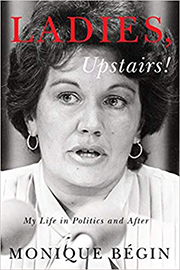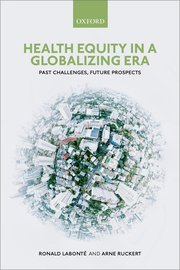Ancillary Events
PRE-CONFERENCE SESSIONS, MONDAY 29 APRIL
Health Canada's Air Quality Program
Registration fee: Free
Health Canada’s Air Quality Program is soliciting input on how to better support public health policy from the regulatory and research perspectives. We welcome you to join us and learn about the exciting air quality work – research, guidelines, and interventions - Health Canada is undertaking to protect the health of Canadians. More importantly, we invite you to HAVE YOUR SAY! Topics will include: indoor air quality; the intersection between exposure research and public health; the latest on radon; and traffic pollution.
NETWORKING ACTIVITY, TUESDAY 30 APRIL
Making connections - A 5 à 7 with the NCC's and the Rural, Remote and Northern Public Health Network
Registration fee: $25
Join the six National Collaborating Centres for Public Health (NCCs) and the Rural, Remote and Northern Public Health Network (RRNPHN) for a dual language, interactive “5 à 7” networking event. Meet and connect with NCC and RRNPHN staff, as well as conference speakers and other CPHA 2019 participants. Learn about projects and explore new collaborative opportunities to strengthen public health in the rural and remote communities of Canada. Light snacks will be served and a cash bar will be available.
BOOK SIGNINGS
Public Health 2019 will host two separate book signings with the authors.
Monique Bégin: Ladies, Upstairs! My Life in Politics and After
Tuesday 30 April, 13:00 - 14:00, Parliament Foyer, CPHA Lounge
$36.70

More than fifty years after most Canadian women received the right to vote, very few women were elected as members of Parliament and none came from Quebec. Canada's 1972 federal election marked a refreshing transition. Twice as many female candidates ran for office than in the previous election, and, of the five women elected to the House of Commons that year, three Liberal Party candidates - Monique Bégin, Albanie Morin, and Jeanne Sauvé - shared the honour of being the first Quebec women MPs. In this riveting memoir of a trailblazing female politician, Monique Bégin tells the story of her journey into politics and beyond. Born in Italy, Bégin spent her childhood in France and Portugal before arriving in Montreal as a refugee of the Second World War. In 1967, she was swept into the world of politics when she became executive secretary of the Royal Commission on the Status of Women. Inspired by Pierre Trudeau, she then ran for the House of Commons and served in various cabinet positions, ultimately spearheading the landmark Canada Health Act before retiring to pursue a career in academia. Offering a revealing glimpse into the pervading sexism of Canadian public life, Ladies, Upstairs! details the experiences of a feisty, candid outsider who, through sheer fortitude, intelligence, and hard work, became minister of health and welfare, a university dean, a sought-after member for commissions of inquiry, and an international expert on public health. The voice of a woman in a male world, a francophone among anglophones, and a skeptical politician, Ladies, Upstairs! provides a fascinating account of one of Canada's most impressive federal ministers and her discoveries through the decades.
Ron Labonté: Health Equity in a Globalizing Era: Past Challenges, Future Prospects
Wednesday 1 May, 12:30 - 13:00, Room 206
$54.00

Why do some countries and populations suffer from poverty and ill health, whilst others are more prosperous and healthy? What are the inherently global (trans-border) issues that affect inequities in disease burden and health opportunities for individuals and nations? Traditionally, the focus of global health has been 'international health': the concern for high burdens of disease in generally low-income countries. To answer these questions however, we need to modernise our understanding of globalization as a phenomenon.
Health Equity in a Globalizing Era: Past Challenges, Future Prospects examines how globalization processes since the on-set of neoliberalism affect equity in global health outcomes, and emphasises access to important social determinants of health. With a basis in political economy, the book covers key globalization concepts and theory, and presents a thorough background to the field.
Case studies, illustrations, and new research all combine to make this title a comprehensive and current discussion of the various pathways that connect globalization to health equity outcomes. It looks at changes in migration, labour markets, trade and investment rules, international development assistance, health systems, infectious and non-communicable disease risks, environmental health, and gendered aspects of globalization's health dialectic. In addition, it argues for a reform of the global governance structure, the significant role of human rights, and the importance of a strong civil society in achieving greater social justice in health.
